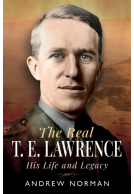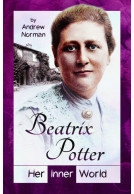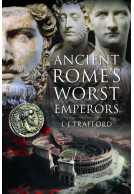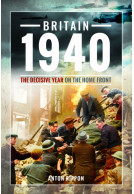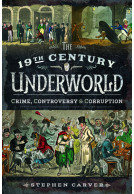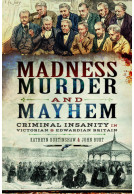The Amazing Story of Lise Meitner (Hardback)
Escaping the Nazis and Becoming the World’s Greatest Physicist
Imprint: Pen & Sword History
Pages: 264
Illustrations: 32 black and white illustrations
ISBN: 9781399006293
Published: 2nd June 2021
(click here for international delivery rates)
Order within the next 4 hours, 15 minutes to get your order processed the next working day!
Need a currency converter? Check XE.com for live rates
| Other formats available - Buy the Hardback and get the eBook for £1.99! | Price |
|---|---|
| The Amazing Story of Lise Meitner ePub (884.9 KB) Add to Basket | £6.99 |
The book describes how Lisa Meitner, of Jewish heritage, found herself working as a physicist at the Kaiser Wilhelm Institute in Berlin when the Nazis came to power in 1933; how she was hounded out of the country and forced to relocate to Sweden; how German chemists Otto Hahn and Fritz Strassman continued with the project – on the effect of bombarding uranium (the heaviest known element at the time) with neutrons, a project which Lise herself had initiated, being the intellectual leader of the group.
It describes how Hahn and Strassmann, with whom she kept in touch, came up with some extraordinary results which they were at a loss to explain; how Lise, and her nephew Otto Frisch, who was also a physicist, confirmed what they had achieved - the ‘splitting of the atom’, no less, and provided them with a theoretical explanation for it. This laid the foundation for nuclear power, medical-scanning technology, radiotherapy, electronics, and of course, the atomic bomb - the creation of which filled Lise with horror.
It describes the crucial part that Lise played in our understanding of the world of atoms, and how deliberate and strenuous attempts were made to deny her contribution; to belittle her achievements, and to write her out of the history books, even though Albert Einstein said she was even ‘more talented than Marie Curie herself’.
The author is fortunate and honoured to have been granted several interviews with Lise’s nephew Philip Meitner – himself a refugee from the Nazis - who with his wife Anne, provided much valuable information and many photographs.
A very enjoyable read… having heard of Lise Meitner before was good to get a proper insight of her life and the hardships she faced. Definitely worth a read…
NetGalley, sarah clark
Rating: 5 out of 5 stars
NetGalley, Vansa David
Excellent book that not just is a comprehensive biography of Lise Meitner, but also a detailed , lucid account of the development of nuclear physics in the first half of the 20th Century. This was taught to us at school, and I remember all of it quite well, because it's really interesting-how the world works at a sub-atomic level, but we were obviously taught only the end results of decades and decades of painstaking observations and experimentations. I have a school-level understanding of the processes of fission and fusion, but it's fascinating to see the step-by step ways in which the mechanics of these nuclear processes were observed and analysed, and understood. This book brings out Newton's quote extremely well, of scientific discoveries that are achieved through "standing on the shoulders of giants". Scientific discovery is an incremental process, and each step is integral to the final result. How are discoveries finally credited though? Therein lies the rub, and the injustice done to Lise Meitner .
The book perfectly strikes a balance between chronicling all her scientific achievements, without the complexity of nuclear physics overwhelming you-there are helpful explanations throughout, and you're not confused at all about each step of their process. It's written very well, and though the writer's describing a collaborative epistolary process involving discussions of observations, trying out various theories, calculations to see if they fit, it's practically edge-of-the-seat, and when Meitner and Frisch finally work out the maths of it and it works, I felt like yelling "Eureka" myself! When he quotes from Frisch's paper detailing the process, and deciding to use the word 'fission' to describe it, you find yourself almost suppressing a gasp-this is a commonplace word now and I associate it almost entirely with nuclear energy, but this is how it all started.
Her immense courage and perseverance shine through the book, her escape from Nazi Germany in her 60s, her struggles with inadequate lab facilities and funding, her keen interest in the scientific world throughout. The best part of the book, to me, was the descriptions of the Nobel Committee and the complete lack of transparency and fairness at all, in the awarding of honours. It explains a lot about the Literature Nobel selections! The author has meticulously constructed a timeline of events, using diary entries and letters, to show just how much of a deliberate elision of her name was carried out by Otto Hahn, while proposing the theory of nuclear fission. In Nazi Germany, Meitner's name could not be included in the paper as it would be completely discredited, being the work of a Jewish scientist. After it was over, however, nothing prevented Hahn from giving her credit as she was due, something he never did, and actively worked to prevent. It was only in the 90s that Meitner, credited till then as "Hahn's assistant", a complete travesty given that she had set up the entire nuclear Physics department, and was more his boss than assistant, was restored in documents and laboratory labels as the Head of the Department.
A fascinating part of the book were the chapters where the author writes the "Farm Hall 10"-10 German scientists, some who had been Nazis, others who hadn't, who were brought to England towards the end of the war, and interrogated about their work, and political leanings. All of them vehemently denied being Nazis, of course. Farm Hall was bugged, and the author's made meticulous use of their transcripts, to discuss this entire period of history. A theory that's been discussed everywhere, including Michael Frayn's great play 'Copenhagen', is that Nazi Germany did not develop the atomic bomb through the active efforts of nuclear physicists, specially Werner von Heisenberg, to sabotage it. The author attempts a fact checking of how true this claim is, and even his detailing of his documentary source is compelling-he constructs a quite damaging picture of just how comfortable with the Nazi regime all these scientists were-multiple meetings and lectures to senior Nazi officials with assurances of work on the atom bomb, meetings with senior Nazi leaders including Goebbels, Himmler and Goering. From all of these sources, the author theorises that the atom bomb wasn't developed not because the scientists themselves worked to prevent that, but arose more from the wrong basic starting points to develop it, and a lack of enthusiasm from Hitler towards developing it. Enemies changed quickly, though, after World War II, and since these scientists were going to prove themselves useful towards the Cold War effort, their reputations were rehabilitated, and they were portrayed as courageous dissenters, when not all of them were, some (including Hahn) were enthusiastic NAzi supporters from the 1930s onwards.
After the war, Meitner's importance to nuclear fission was given a lot more primacy, and she was recognised as a driving force behind it. She went on lecture tours across the world, traveled, went on hiking holidays, and to some extent, that alleviated all those years of suffering and the lack of recognition. She may not have a Nobel prize, but an element in the periodic table has been named after her. A thousand years from now, the Nobel Prizes might cease to exist. Meitnerium, however, will not, and might even be present across the universe, like the process of nuclear fission, the understanding of which she contributed so much to. As a tribute, I think that's a far more lasting immortality.
The author is fortunate and honoured to have been granted several interviews with Lise’s nephew Philip Meitner – himself a refugee from the Nazis – who with his wife Anne, provided much valuable information and many photographs.
UK Historian
I admit to watching a programme about Lise Meitner a few months ago, and what an extraordinary story and life she had. Meitner who was a physicist, but she had two problems at the time, he was Jewish and she was a woman. Had she just been given the recognition she deserved then she could probably have achieved so much more. This book is fascinating to read and so well written. If you live in the scientific world you’ll probably get a lot out of it, but she is certainly a fascinating woman. An excellent book that doesn’t get too scientific but makes for a very good read.
Read the full review here
As seen in the Cambridge Independent
The Cambridge Independent
A woman who should have, but did not, received the Nobel Prize, Meitner researched alongside the great names of science. Her personal tale is genuinely epic. An important name in science.
NetGalley, Carol MacArthur
This superb biography of an outstanding scientist is well written with black and white illustrations and an index and serves to remind us all of her remarkable life lived with honesty, integrity and dignity as well as her numerous scientific achievements. The characters portrayed in the book and her collaborators and scientific contemporaries are a who’s who of important scientists of the first half of the twentieth century and reading this book was an informative, humbling and inspiring experience.
Dr Arpan K Banerjee, British Society for the History of Radiology
Read the full here
A well written story that has everything you look for in a good book with the extra bonus of the reader knowing its real.` Lise Meitners life is an inspirational story, but even more a true example of how we cannot let anything keep us from our dreams and aspirations. If Ms Meitner can triumph over the circumstances she lived through during WWII, then most of us need to reevaluate why we complain about things so much.~ Andrew Norman did a fantastic job and should be so proud of bringing Lise Meitners story to the world.
NetGalley, Holly Senecal
The Amazing Story of Lise Meitner is a biography of the incredible physicist who escaped Nazi Germany. Her work was integral to understanding the atom. Her work was all the more impressive given how much harder a Jewish woman had to work at the time just to be heard.
NetGalley, James Doyle
This is a well-written book that is accessible to all, even if you aren't particularly science-savvy. A good read.
Rating: 5 out of 5 stars
NetGalley, Annie Buchanan
The book is layman accessible, and I found it a fascinating read. It's well annotated (and the chapter notes and index make for fascinating further reading) but doesn't get bogged down in overly academic language. The biography is straightforward and doesn't dwell too much on minutiae with a notable exception. The author is quite thorough in the chapter on the Meitner family connections which includes short one-paragraph bios on many of them which was interesting and gave some scope to the appalling losses during the war and how scattered families became during the early to mid 20th century.
The book is full of quotes from Meitner's own correspondence (she hints at lots of juicy academic gossip at the highest levels) as well as quotes from contemporary interviews and media reports on her and her work. What absolutely fascinating tales she could have told.
The chapter notes and bibliography are for papers and research many of which are presented in languages other than English (chiefly German) so readers who would like to delve deeper will need to read German or find translations.
Five stars. Heartily recommended for readers of science, history, and similar subjects. This would be a good choice for readers of science history who are not, themselves, physicists. Although the book is about physicists and their interactions and squabbles and politics, it's doesn't contain much actual physics (which is a plus for readers who don't have a strong maths or physics background).
This was a very enjoyable read about an amazing woman. At first, given the subject material, I was worried it would be very "science based" (as it was not my best subject in school!). But it wasn't. The author tells you just enough so that you have an idea of what's going on but the story is very much about Lise.
NetGalley, Devon Stringer
Rating: 5 out of 5 stars
NetGalley, Stephen Goldberg
I enjoyed this book. There is some great story-telling, especially about Lise Meitner's escape from Germany. It came across clearly to me that author Andrew Norman greatly admires Lise Meitner, but this book is not a fawning biography. I felt that it is an honest portrayal of Meitner’s personality and life.
Norman explains the science as he goes, with just enough detail to explain and no more. But this book isn't about science; science is the backdrop. The book is about friendship, rivalry, betrayal, and bigotry. At this, the book excels. Overall this book is well worth reading.
About Andrew Norman
Andrew Norman was born in Newbury, Berkshire, UK in 1943. He was educated in Southern Rhodesia (now Zimbabwe), Midsomer Norton Grammar School, Somerset, UK, and St Edmund Hall, Oxford.
Andrew worked as a general practitioner in Poole, Dorset, before a spinal injury cut short his medical career. He is now an established writer with biographies of Charles Darwin, Winston Churchill, Thomas Hardy, T. E. Lawrence, Adolf Hitler, Agatha Christie, Enid Blyton, Beatrix Potter, Marilyn Monroe, and Sir Arthur Conan Doyle to his name.
The death of Lise Meitner
27th October 1968
Physicist Lise Meitner died in Cambridge, England on 27 October 1968.









